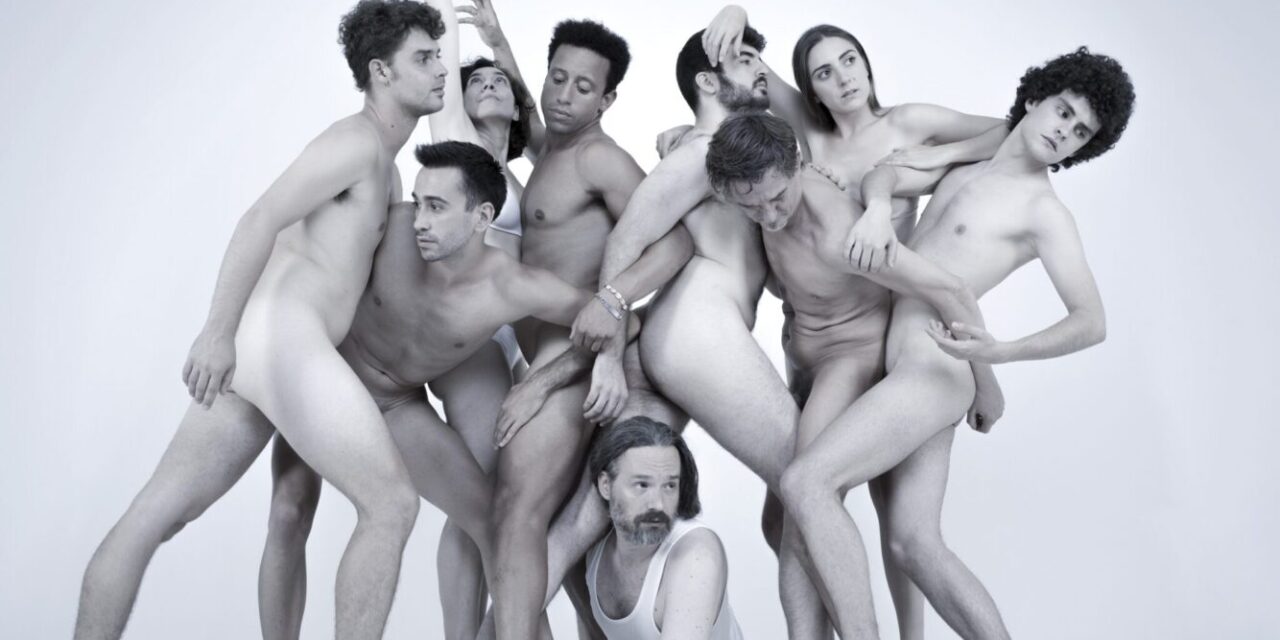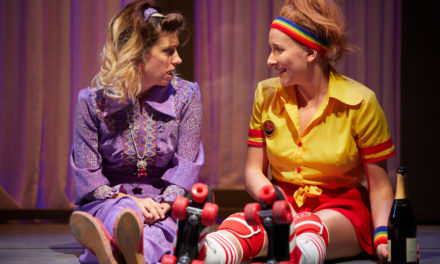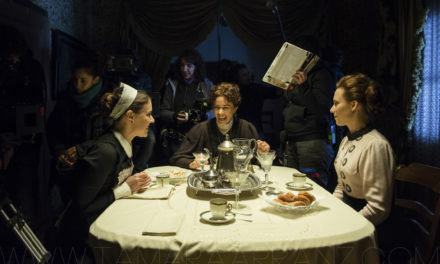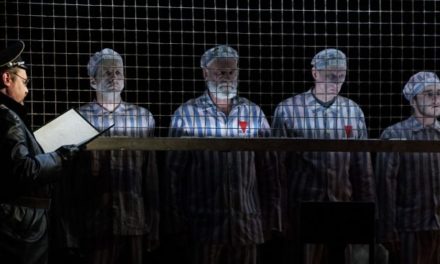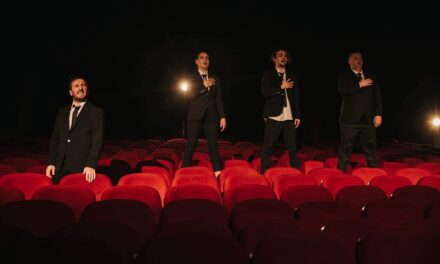October was the month of Surge Madrid festival. A collection of the alternative theater whose purpose was to show what artists on the fringes are doing. Dozens of plays could be enjoyed in the capital and in its surroundings during this time. It was a challenge for any reviewer or journalist covering the festival, as they had to select what to see and where to go in a city rich in theater temptations, even beyond the festival.
At a glance, plays showed in Surge do not seem to have too much in common, but once you dive in some common threads emerge. The use of performative forms or dance, their political interest in participating in public debate, most of them in the hot topic of feminism, and the absolute commitment of the professionals with the theater they do.
This commitment is breathtaking in the case of Hombre desnudo (Naked man) by Pedro Martínez and Casa Lagarta in Nueve Norte. Its purpose is to illustrate how culture contribute to building gender roles in western societies. How masculinity is a cultural construction that makes suffer people. Perhaps, it is the best and shocking play of the festival.
There are several reasons to be socked. Undoubtedly actors, who are naked from the beginning and there are no other props apart some chairs and a cross in the last scene. They must touch the spectators with their voices and bodies on the stage.
In addition, the text and the actions usually go beyond the limits. Therefore, many spectators feel confused, for example with their version of the last scene of House of Dolls by Ibsen, or angry. For instance, most of the audience have problems to say any intelligible immediately after watched it. However, people, who could manage their feelings and think about the play later, change their opinion completely.
El movimiento (The movement) by Fernando López at Nave 73 is another play that focuses on women’s roles. It analyzes songs that were popular in Spain before Spanish Civil War and, as the performance shows, share ideas with the new Spanish ultra-right parties. These parties use those chauvinist songs, which are almost a hundred years old, in their meetings because they are really close of the point of view that they have about gender roles.
Those same parties are the target of next play. Cambaleo, a well-known Spanish theater company, suggests they are the source of the ideas that are ruining the day to day life of ordinary people in Manual de comportamiento cuando todo está perdido (Breve Ensayo Escénico Sobre La Incertidumbre) (Manual of behavior when all is lost (Brief Scenic Essay On Uncertainty)) in Teatro Pradillo.
This play is starred by a group of people who dance like in the classic movie They Shoot Horses, Don’t They? There is music, of course, but what is most interesting are they lyrics: they are a political speech about current uncertainties. All the while, the dancers serve as a metaphor for people who can only dance to music that others play and sing the words of others.
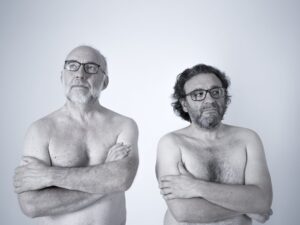
“Las cosas” by Los Torreznos. Photo by Maykiso.
However, not all of the plays are so serious. Comedies make a presence too without forgetting politics or gender debate. On the one hand, Las cosas (Things) by Los Torreznos in Teatro del Barrio tries to define what a thing is and is not. The piece, that in the beginning is like a lecture, becomes an absurd comedy but a clarifying political debate. Audience listens silly sentences plenty as wisdom as “A house is not a thing” or “Everything that a person could wears is not a thing.” Sentences that are said as Laurel and Hardy or Groucho Marx of Marx Brothers will say.
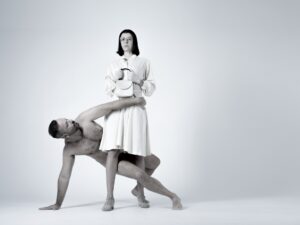
“Pas de Deux” by Chevi Muraday and Miss Beige. Photo by Maykiso.
Alternatively, Pas de deux by Chevi Muraday and Miss Beige in la Sala Cuarta Pared bases its humour on physical attitude and slapstick on the stage. The piece shows the attempt of a romance between a man and a woman. He tries that she dances with her, but she refuses. She remains impassive, as a British lady, and looks for different ways of dancing without dancing, pretending to flirt without flirting. The contrast between them and what they do on stage is simply hilarious.
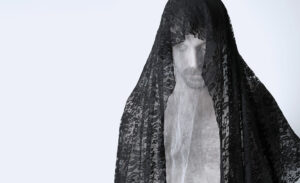
“Las palabras de la carne” by Jose Andres Lopez and Viviseccionados. Photo by Maykiso.
Dance is also important in Las palabras de la carne (Words of the flesh) by José Andrés López and Viviseccionados in Sala Cuarta Pared. While Alessandra García dances flamenco energetically, she recites a complex text full of philosophical references. Her long scene dancing and talking is a good metaphor of the dilemma of the play between flesh and words. Which was first? And how do they influence each other?
It is not the only play where the script is crucial. Amateurs by David Roldán Oru at Sala Mirador is another one based on how the author felt when he broke up with his partner. It is a poetic text that analyze the role of a man in a contemporary heterosexual relationship. The story shows how old-style masculinity fails miserably in a relationship with a XXI st century woman. A romantic story with a masculine point of view, which could survive several seasons in theaters because is plenty of interest in these kinds of stories, not to mention the mesmerizing stage design by David Utrilla.
Overall, Surge festival has achieved its objectives, showing a wide range of quality plays and kinds of performances. It is precisely this variety that guarantees the richness of the theatrical sector in Madrid because it has given opportunities to a set of professionals who are now ready to take on the challenge and grab the attention of audiences who are looking for what they cannot find in commercial theater.
This post was written by the author in their personal capacity.The opinions expressed in this article are the author’s own and do not reflect the view of The Theatre Times, their staff or collaborators.
This post was written by Antonio Hernández.
The views expressed here belong to the author and do not necessarily reflect our views and opinions.

